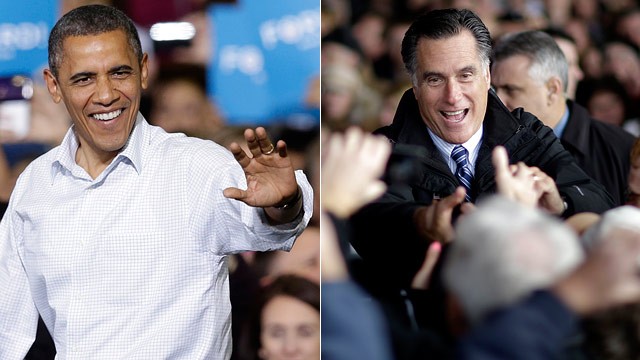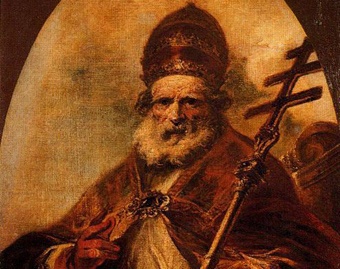Unsure of who to vote for in tomorrow’s U.S. Presidential election? Well, as we mentioned before: you are what you tweet! And Tweetcast may just know your mind better than you do!Either way, it claims to predict how you’ll vote based on your tweets. Claiming to offer 80% accuracy (if you’re ‘political’ and 65% […]
US presidential rivals Barack Obama and Mitt Romney have spent the day before the election visiting key swing states and making final pitches to voters. Mr Romney went to Florida, where polls suggest he has the edge, and then to Virginia, New Hampshire and Ohio. Mr Obama appeared in Iowa, Wisconsin and Ohio, joined at rallies […]
A federal lawsuit filed Monday in Columbus, Ohio, charges the secretary of state’s office with illegally installing untested software on voting systems in dozens of counties – a step that creates a digital “back door,” which someone wishing to alter vote totals might be able to exploit. With Ohio seen as perhaps the most […]
The head of the Mustaqbal parliamentary bloc MP Fouad Saniora stated on Monday that the current government “is causing a problem in Lebanon that needs to be tackled.” He reiterated after holding talks with Maronite Patriarch Beshara al-Rahi the need for the formation of a new government, stressing: “The constitution stipulates that there can be […]
When a car bomb laden with over 60 kilograms of TNT gutted the sleepy residential impasse of Ibrahim al-Munzer St. on October 19, it did not merely kill an intelligence chief, his driver and a luckless bystander. Situated scarcely a hundred meters from the bustling Sassine Square—where dozens of glass panes were instantaneously shattered—the […]
David Cohen on November 5, 2012 9:30 AM The latest example of Facebook users boasting about crimes they committed involves the 2012 presidential election, as a blog called Barracuda Brigade preserved an image of a since-deleted Facebook comment by a North Carolina man who claimed to have already voted for President Barack Obama four […]

Eve-of-poll voter surveys mostly point to a narrow US presidential election victory for Barack Obama. But with the contest finely balanced in a few key states, it would not take much to shift the advantage to Mitt Romney. A last-minute slip, a neglected minority voter bloc, or simply a piece of bad luck could be enough to ditch Obama and send the Republican to the White House.
Here’s one possible example: Obama’s unguarded suggestion in Springfield, Ohio last Friday that "voting is the best revenge" has been seized on by Republicans. Romney exploited it in a speech later that same day. "He [Obama] asked his supporters to vote – to vote for revenge. Instead, I ask the American people to vote for love of country," Romney said – and then aired a TV attack ad featuring the exchange.
"’Revenge’ is not something sought by most American voters, and 2008 Obama voters who are disappointed in his performance … Voters want someone who will serve the country. The moment when Obama said "revenge" could turn out to be a pivotal moment in the campaign", said Beltway Confidential commentator Michael Barone. Obama faces plenty of other possible last-minute pitfalls as he reaches for the finishing line.
In this razor-thin presidential race, everyone has a theory about where things will end up on Election Day — with some even predicting control of the White House won’t even be settled by the time we go to sleep Tuesday night.
The Obama campaign points to the president’s lead over Mitt Romney in many of the key swing states as evidence that finding a way to the magic number — 270 electoral votes — based on the current map is still a tougher slog for the Republican challenger than for the incumbent.
But today, the last marathon day of the 2012 election cycle, indications about the tightness of the race are everywhere. In our own ABC News-Washington Post tracking poll out Sunday night the contest between the two presidential contenders remains deadlocked, with 49 percent support for Obama among likely voters compared to 48 percent for Romney.
The Bradley effect
Named after a former black mayor of Los Angeles, this phenomenon involves voters telling pollsters they intend to support a black candidate, and then not doing so because of his or her ethnicity. In 2008 Obama enjoyed an 8-9% lead in most polls, but his actual margin of victory was 6%. If today’s polls are overestimating his backing by a similar margin, Romney will win.
Racial prejudice, covert or otherwise, also partly explains why a majority of white males will vote against Obama. In 2008, 57% backed Republican John McCain. The anti-Obama totals among both white men and women may be higher this time, polls suggest. It is also a fact that white males prefer Republicans to Democrats, whatever their colour.
Turnout
The Democrats need a big turnout to secure victory but most estimates suggest Obama’s support, particularly among younger voters, blacks and Hispanics, will fall well below 2008 levels, partly as a result of disappointment with his performance in office.
"In 2008, voters 18 to 29 went for Obama 2-1 over McCain; turnout among these young voters was the second-largest ever recorded. But in 2012, that youthful Obamamania seems to have faded. Alex Wirth of the Harvard Public Opinion Project has forecast that turnout for voters under 30 will be 34 to 40%, compared with 51% four years ago," said Fast Company’s Anya Kamenetz.
Swingers
At the heart of American pollsters’ electoral map lies an awkward little secret. Presidential elections are increasingly decided by an ever-smaller group of swing voters within an ever-smaller number of swing states. Nobody really knows exactly who or where these people are, and that makes for severe unpredictability. But Republicans are claiming independent voters (neither Republican nor Democrat registered) are breaking 2-1 for Romney in toss-up states and that early voting turnout shows the Republican base is more energised.
Acts of God
Religiously-inclined voters could also give Obama a scare. "I expect Mitt Romney to maximise the white religious vote … The major push Obama made in 2008 among white Catholics is completely absent this cycle … Anti-Mormon sentiment has never caught on among the Christian community to the degree some feared. And Obama’s contraception and abortion message has caused a great deal of concern among religious groups, Protestant and Catholic alike," said analyst Ben Domenech.
Perfect storm
Despite suspicions about Hurricane Sandy, Obama does not control the weather. Forecasters say election day will be cold, wet and windy in the north and east – not good for the needed high Democrat turnout.
Cock-up or conspiracy?
Comparisons are already being made with the 2000 presidential election that saw George Bush installed as president after numerous recounts, legal challenges, and myriad balloting irregularities gave rise to claims of widespread fraud and rigging. Today’s election is supposed to be better organised. But Americans are a sceptical lot. If the vote is as close as predicted, and the result is not immediately clear, claims that sinister forces are at work will not be long in coming.

.- Nov. 10 is the Roman Catholic Church’s liturgical memorial of the fifth-century Pope Saint Leo I, known as “St. Leo the Great,” whose involvement in the fourth ecumenical council helped prevent the spread of error on Christ’s divine and human natures.
St. Leo intervened for the safety of the Church in the West as well, persuading Attila the Hun to turn back from Rome.
Eastern Catholics and Eastern Orthodox Christians also maintain a devotion to the memory of Pope St. Leo the Great. Churches of the Byzantine tradition celebrate his feast day on Feb. 18.
“As the nickname soon attributed to him by tradition suggests,” Pope Benedict XVI said in a 2008 general audience on the saint, “he was truly one of the greatest pontiffs to have honoured the Roman See and made a very important contribution to strengthening its authority and prestige.”
Leo’s origins are obscure and his date of birth unknown. His ancestors are said to have come from Tuscany, though the future pope may have been born in that region or in Rome itself. He became a deacon in Rome in approximately 430, during the pontificate of Pope Celestine I.
During this time, central authority was beginning to decline in the Western portion of the Roman Empire. At some point between 432 and 440, during the reign of Pope St. Celestine’s successor Pope Sixtus III, the Roman Emperor Valentinian III commissioned Leo to travel to the region of Gaul and settle a dispute between military and civil officials.
Pope Sixtus III died in 440 and, like his predecessor Celestine, was canonized as a saint. Leo, away on his diplomatic mission at the time of the Pope’s death, was chosen to be the next Bishop of Rome. Reigning for over two decades, he sought to preserve the unity of the Church in its profession of faith, and to ensure the safety of his people against frequent barbarian invasions.
Achrafieh 2020 invited all Lebanese and residents to DISCOVER Rmeil (Rmeil/Geitawi) on foot, on bicycle, or on roller/skateboard on November 4, 2012 from 8:30am up to 6pm. The car-free perimeter was defined and posted on achrafieh2020.org prior to D day. For more info, click [Here].
Bishop Tawadros was chosen as new Pope of Egypt’s Coptic Christians Sunday when a blindfolded altar boy picked his name from a chalice in a ceremony invoking divine guidance for the beleaguered minority. Acting head of the church Bishop Pachomius took the ballot from the boy’s hand and, showing it to those crowded into St. […]



